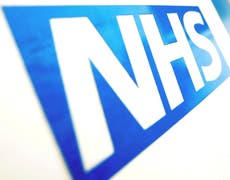Covid has led to an epidemic of eating disorders, yet sufferers are not getting the help and support they need
With community services still difficult to access, more people with eating disorders are getting sicker and are reaching a point of crisis

Your support helps us to tell the story
From reproductive rights to climate change to Big Tech, The Independent is on the ground when the story is developing. Whether it's investigating the financials of Elon Musk's pro-Trump PAC or producing our latest documentary, 'The A Word', which shines a light on the American women fighting for reproductive rights, we know how important it is to parse out the facts from the messaging.
At such a critical moment in US history, we need reporters on the ground. Your donation allows us to keep sending journalists to speak to both sides of the story.
The Independent is trusted by Americans across the entire political spectrum. And unlike many other quality news outlets, we choose not to lock Americans out of our reporting and analysis with paywalls. We believe quality journalism should be available to everyone, paid for by those who can afford it.
Your support makes all the difference.Lockdowns and reduced social contact have affected us all to some extent. But people living with an eating disorder have lost the support networks that are so vital to their recovery. This, coupled with reduced access to community services due to workforce shortages and the need for social distancing, means many people are suffering in silence, unable to access the help they need in their communities.
With community services difficult to access, more people are getting sicker and are reaching a point of crisis. Their illnesses are getting worse because they’ve not been able to get the early treatment that is crucial to combatting an eating disorder. The sicker they become the more likely it is they’ll need inpatient care and potentially life-saving treatment. Sadly, we are already seeing this in services.
New data from one provider collaborative in the south of England shows there’s been a 20 per cent increase in the number of adult emergency referrals and a doubling in the waiting time for urgent care from 33 to 67 days since the pandemic. There’s also been a fourfold rise in the number of young people waiting for urgent care and a 129 per cent increase in those needing routine treatment compared to this time last year.
Eating disorders can affect people of all genders at any age. The number of men admitted for an eating disorder has increased by 24 per cent in the last three years, while the number of women and men over 41 has increased by 36 per cent.
While demand for services is surging, the capacity of the crumbling mental health estate has been drastically reduced. Infection control and social distancing measures mean many beds have been lost, depriving people living with anorexia, bulimia, binge eating disorders and other conditions from the lifesaving care they need. It cannot be right that services are either turning people away or sending them far from home for treatment because of a lack of capacity.
Years of chronic underinvestment is one of the reasons why services are struggling to meet demand. There must be significant investment into services, including updating the dilapidated buildings in which we treat our patients. Money alone is not enough. We also need the workforce in both community and inpatient settings to ensure those patients who do get a referral can promptly access the treatment and support they need.
Early intervention is vital when it comes to treating eating disorders, but far too often these illnesses are missed by frontline health and care staff. That’s why the Royal College of Psychiatrists is calling for all frontline staff to be better trained in identifying these conditions so that patients can be signposted to specialist services.
The waiting time targets for children and young people have fortunately improved access to treatment. Now it’s time to deliver waiting time targets for adults, otherwise the cruel postcode lottery in their treatment will continue despite the commitments made in the NHS long-term plan.
Messaging to encourage people to exercise and to look after their weight was understandably intended to help people stay active and healthy during the pandemic. But this messaging can have a detrimental effect, particularly on younger people who might be worrying about how they look and think they should be losing weight.
The government and NHS England must take urgent action to address the hidden epidemic of eating disorders sweeping across the country because of the pandemic and prevent more lives being lost.
Dr Adrian James is president of the Royal College of Psychiatrists.
For anyone struggling with the issues raised in this piece, eating disorder charity Beat’s helpline is available 365 days a year on 0808 801 0677. NCFED offers information, resources and counselling for those suffering from eating disorders, as well as their support networks. Visit eating-disorders.org.uk or call 0845 838 2040.




Join our commenting forum
Join thought-provoking conversations, follow other Independent readers and see their replies
Comments